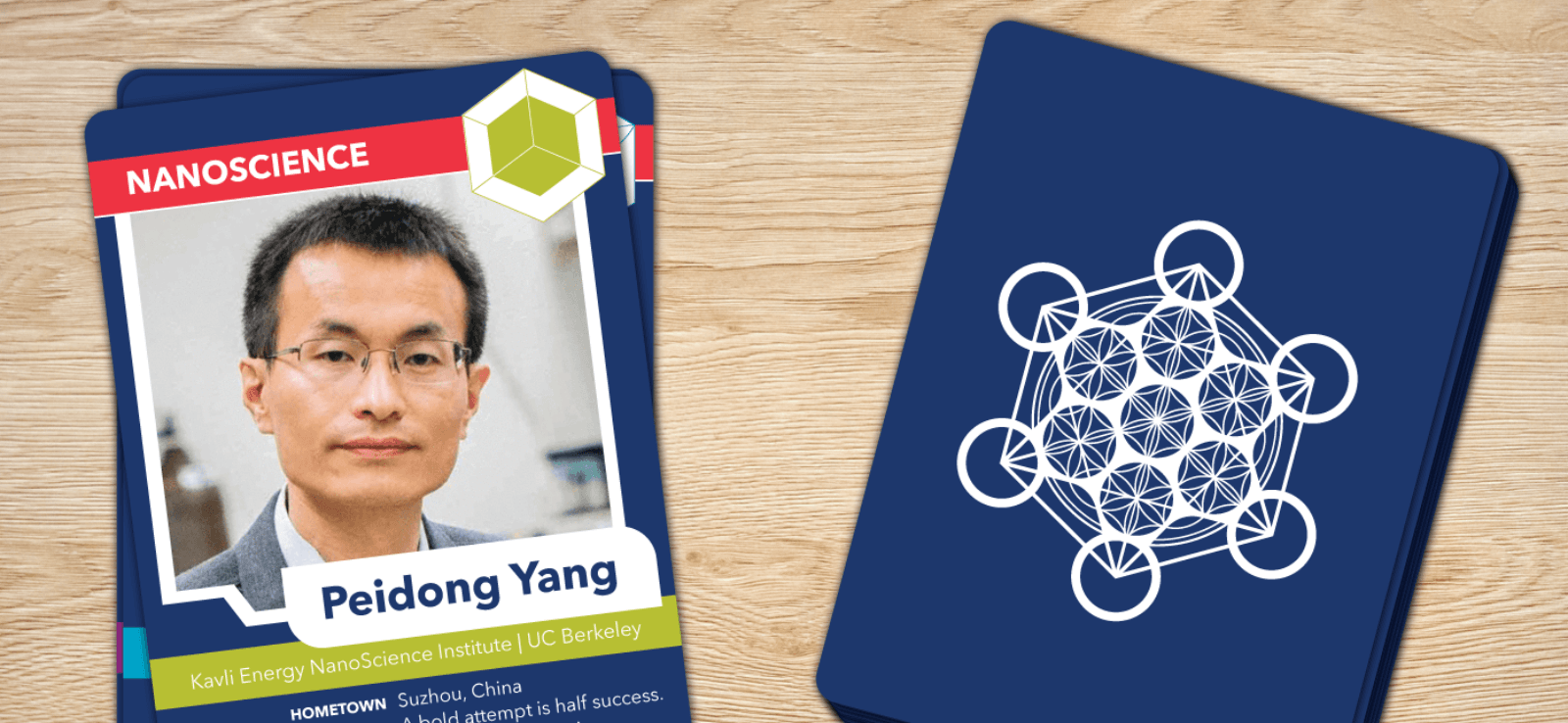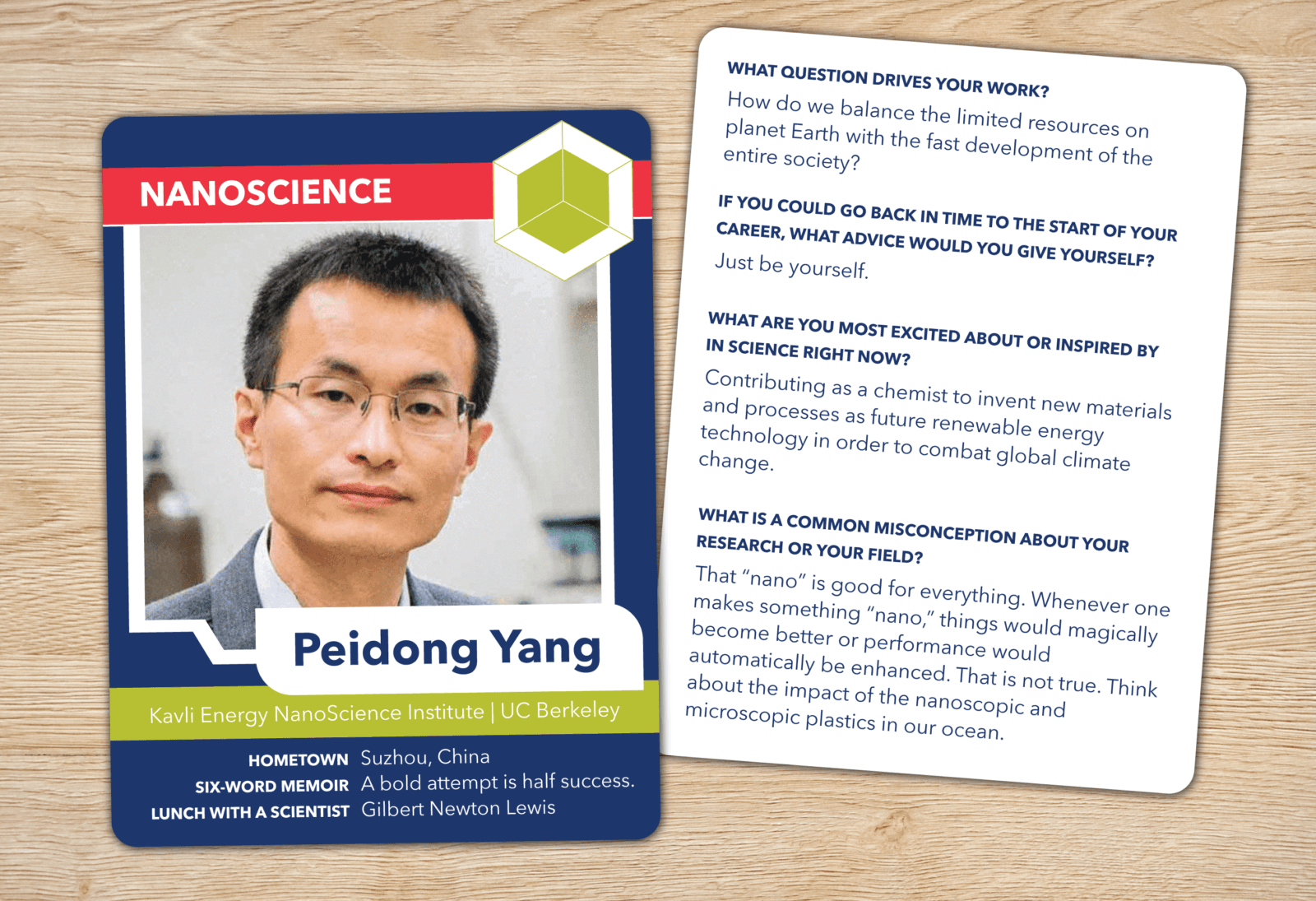Nanoscience and Sustainability
Q&A with Peidong Yang, director of the Kavli Energy Nanoscience Institute

The Researcher
QUICK FACTS
Hometown: Suzhou, China
Favorite Movie or Book: Cathedrals of Science, by Patrick Coffey
Your 6-word memoir: A bold attempt is half success.
First job: Professor
Hobbies: Hiking, Cooking

How did you first become interested in science?
Later 1980s, the discovery of high temperature superconductivity in cuprate oxides by IBM scientists really sparked my interests while I was freshman in college. Since then, I have developed tremendous interests in materials chemistry. It is fascinating to discover new materials with new functionalities.
What is the question that most drives your work?
How do we balance the limited resources on planet Earth with the fast development of the entire society?
How would you explain your research to a kindergartener?
What is artificial photosynthesis? First of all, we are learning from nature. Photosynthesis in plants converts carbon dioxide, water and sunlight into important carbohydrates and oxygen. In the lab we are inventing new materials doing that exactly same chemistry: converting carbon dioxide, water and sunlight into useful chemicals and oxygen – ultimately with even better energy conversion efficiency.
What are you most excited about or inspired by in science right now?
Contributing my part as a chemist to invent new materials and processes as future renewable energy technology in order to combat global climate change.
What is a common misconception about your research or your field?
That “nano” is good for everything. Whenever one makes something “nano,” things would magically become better or performance would automatically be enhanced. That is not true. Think about the impact of the nanoscopic and microscopic plastics in our ocean.
If you could go back in time to the start of your career, what advice would you give yourself?
Just be yourself.
What scientist, dead or alive, would you most like to have lunch with and why?
Gilbert Newton Lewis. I would like to pick the brains of these early chemistry pioneers and find out how they actually formulated those early theories in their minds, which are now the foundation of the modern chemistry. In general I am interested in the “from 0 to 1” thought process itself, a necessary ingredient for any creative scientific efforts.